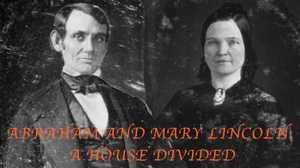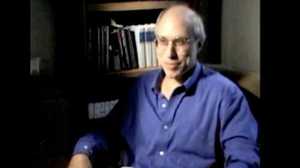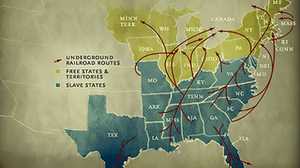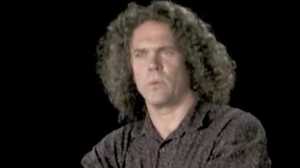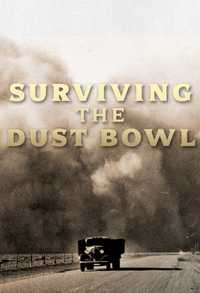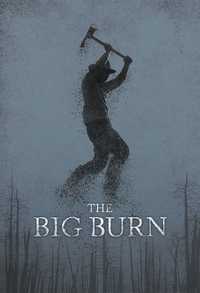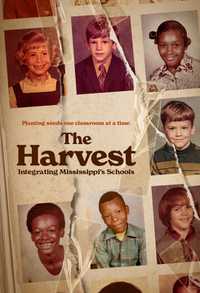Part Two: We Are Elected
Narrator: The only house the Lincolns ever owned stood on the corner of Eighth and Jackson streets in downtown Springfield. Lincoln scraped together $1,200 to buy it in 1844. Here Abraham and Mary would live for the next 17 years, share the everyday routines of married life, raise a family.
Charles B. Strozier, Historian: He moved quickly from living literally in log cabins to living in a house which by any standards represents the upper middle class of mid-19th Century America. This is a guy who, once he left the prairie and once he got out of New Salem, he never went back.
Linda Levitt Turner, Biographer: Abraham Lincoln was certainly unschooled in the social niceties. Sometimes his shirts didn't match or his trousers were too short, and she groomed him in terms of his appearance with one thing in mind that he should physically live up in his appearance to the greatness of his mind.
Narrator: Nine months after their wedding, their first child, Robert Todd Lincoln, was born. A second son, Edward, came three years later. Lincoln now took to calling Mary "Mother."
Charles B. Strozier, Historian: He was a father, which was very important to him. He found love and affection with Mary. He adored her. How can one minimize the significance of finding love and affection from somebody? And to be able to love somebody, as well as be loved in return.
Douglas L. Wilson, Biographer: He became a different man after his marriage. He didn't have to worry about his place in society. He didn't have to worry about courtship. He didn't have to worry about getting along with women. He could concentrate on the things that he did best, which was the man's world of politics.
Narrator: Lincoln continued to build his reputation as a politician, while his work as a lawyer spread his name across the state. He rode the circuit from county courthouse to county courthouse, getting to know voters all across Illinois, and picking up clients wherever he could find them.
Judge Frank J. Williams, Chair, the Lincoln Forum: He liked to get out among the people. And he liked the art form of being a trial lawyer, of getting into a county seat the night before the case was to be heard, meeting with clients, one or two law books, very few pieces of stationery and ink, and doing up a case very quickly and effectively. In fact, he became so good at being a lawyer that he was referred cases by lawyers who lived in these county seats.
You'd go to the tavern the night before the case was to be heard. There's maybe a fire going in the fireplace. The food was dismal. You had four or five lawyers to a bed, three beds to a room. There was a camaraderie. This was a very male oriented culture, and Lincoln loved that. At night, he would swap stories with the other lawyers while the townspeople looked on laughing. No one made them laugh harder than Lincoln.
Charles B. Strozier, Historian: His favorite jokes were ones, which made him look bad or foolish, or jokes about his ugliness, jokes about his height.
David Herbert Donald, Biographer: He might say, "Well, I guess you wonder why I'm here, and I sometime wonder myself why I'm here, and I'm reminded of the day back in Indiana when I was out chopping wood in the forest and a woman came by on a horse, and she stopped and she looked at me and said, 'My, you're the ugliest man I ever saw.' And I said to her, 'Well, ma'am, there isn't a lot I can do about it.' And she said, 'Well, you could have stayed at home.' "
Douglas L. Wilson, Biographer: He liked to make people laugh and apparently he always laughed as loud as anybody. In spite of the fact that he was the funniest storyteller around, he was also a very gloomy man.
Narrator: Lincoln told stories, a friend said, "to whistle away the sadness." He was often withdrawn, given to spells of depression, which he called "the hypo."
Charles B. Strozier, Historian: Depression separates you from other people in profound ways. It is lonely, and it's isolating, and Lincoln's use of humor was an effective way to fight that, to fend it off. It was a deeply human kind of humor that connected with people, that deepened the bonds in whatever audience he found himself. And for him it was vital to whistle off sadness because it helped keep the depression at bay.
Narrator: While Lincoln rode the circuit, Mary stayed home with the children -- where she found it hard going without her husband. She was haunted by fears of burglars, dogs, lightning storms. She suffered from blinding headaches, migraines that sent her to bed for days.
Charles B. Strozier, Historian: Whenever Lincoln left Mary, she experienced it as abandonment, pure and simple. She desperately yearned for him to be more available than he was. Now for the most part in the early years of their relationship, he did seem to meet most of those needs in her.
Narrator: When he could, Lincoln tried to calm her, running home from his law office during the lightning storms that so disturbed her.
But he was incapable of giving her everything she needed. He "was not a demonstrative man," she once said. "When he felt most deeply, he expressed the least."
Mark E. Neely Jr., Historian: Everybody liked him, no one was particularly close to him. So that his law partner, who sat in the law office with him every day for 16 years, when it was all said and done and asked about it, said Lincoln was the most shut-mouthed man I ever knew.
Linda Levitt Turner, Biographer: And Mary blurted everything out. She blurted it out in letters to her friends. She talked and talked and talked.
Charles B. Strozier, Historian: I think Mary desperately yearned to have him there every moment. And yet in her own confusions when he was there she would often get incredibly frustrated with his withdrawal.
Narrator: Lincoln never lost sight of his political career, and in 1844, when a group of Whigs invited him to speak in Indiana, he accepted. But this would be more than a political journey. It would be a journey back into his past. Lincoln's boyhood home was not very far from Springfield, but he had never gone back, as if he were afraid to revisit the scene of his mother's death. Now 35 years old -- lawyer, legislator, husband, and father -- he felt he was ready. Lincoln never pretended to be a poet, but flooded by painful memories, he tried to turn his feelings into verse.
Voice of Abraham Lincoln (David Morse):
Near 20 years have passed away
Since here I bid farewell
To woods and fields, and scenes of play,
And playmates loved so well.
The friends I left that parting day,
How changed, as time has sped!
Young childhood grown, strong manhood gray,
And half of all are dead.
I range the fields with pensive tread,
And pace the hollow rooms,
And feel (companion of the dead)
I'm living in the tombs.
Narrator: Lincoln was discovering that language could help him confront his darkest nightmares. All his life, he would wrestle with words, struggling first to give expression to his own feelings and then to those of his fellow countrymen.
Voice of Abraham Lincoln (David Morse): "Now if you should hear anyone say that Lincoln don't want to go to Congress, I wish you would tell him you have reason to believe he is mistaken. The truth is, I would like to go very much."
Narrator: In 1846, Lincoln ran for Congress and was elected as a Whig to the House of Representatives. At last, he had arrived. Sometime that year, the new Congressman and his wife proudly sat for their first photographs. Lincoln was 37, Mary 28.
David Herbert Donald, Biographer: He is dressed up to have his picture taken because he is a man of importance. And yet you look at him and you still say, "This is a pretty rough character. I'm not sure how far he can go."
But you take a look at those eyes and you say, "Ah, he thinks he's going somewhere, and he's really very pleased with himself." His hair is slicked down on his head. It would never stay there more than five minutes, but just long enough for this photograph.
Doris Kearns Goodwin, Historian: You have the feeling that Mary had a brush with her right before this picture was taken and she pushed it down so far that it doesn't even look like him.
She looks very well put together. She looks stylish. There's an affectionate look on her face. There is a sensual quality to the way she's looking out at the world. She's dressed perfectly, in silk, in lace. This is a woman who's established herself.
You get the feeling that they've come somewhere together. He's been elected to the Congress. He was moving on to national politics, and "Beware World. We're coming!"
Narrator: In 1847, Congressman Elect Abraham Lincoln, his wife Mary, and their sons, Robert and Eddy, arrived in the nation's capital. The city was alive with excitements to dazzle a provincial couple: lectures and plays, concerts by the Marine Band.
With its 50,000 people -- more than 3,000 of them slaves -- Washington was the largest city either of them had ever lived in. All four Lincolns moved into a single large room in a crowded boarding house, and Lincoln began his career as a Congressman.
Judge Frank J. Williams, Chair, the Lincoln Forum: If you look at the Congressional Directory that he filled out himself, during his only term in Congress they have a section that says "education." And he wrote in "defective."
Narrator: But Lincoln was in his element: delighting in cloakroom politics, learning how Washington worked, sending home more than 7,500 copies of his speeches, carefully addressing every envelope by hand.
"Politics were his life," his law partner remembered, "newspapers his food, and his great ambition his motive power.... He delighted in politics, he reveled in it, as a fish does in water, as a bird disports itself on the sustaining air."
But while Lincoln flourished, Mary found only disappointment. She had come to Washington, a friend said, hoping "to loom largely," but with her husband away all day, she was left alone with two small, restless, noisy boys.
Linda Levitt Turner, Biographer: Most wives just stayed at home, especially for first term congressman before you were sure how things were going to turn out. But Mary was determined to come along and they ended up in a boarding house with a lot of other crusty old politicians. And it was a very difficult time for her. She realized nobody was going to make a fuss over her husband, and what was she going to do with these two children, one was barely an infant.
Narrator: Confined to a boarding house, with nowhere to entertain and nothing to do, Mary consoled herself by shopping, sometimes spending too much.
Linda Levitt Turner, Biographer: She had this habit of living beyond her means, of spending rather recklessly and of having a very slippery regard for debts. And she was keeping it from her husband.
Narrator: After just three months, she packed her bags, took the boys, and went back to her family home in Kentucky.
With Mary gone, Lincoln lost himself in national politics. But no one in Washington paid any attention to his speeches or his proposals. He was frustrated and lonely.
Voice of Abraham Lincoln (David Morse): "Dear Mary, In this troublesome world, we are never quite satisfied. When you were here, I thought you hindered me some in attending to business; but now, having nothing but business.... It has grown exceedingly tasteless to me. I hate to stay in this old room by myself."
Voice of Mary Lincoln (Holly Hunter): "My dear Husband, I feel wearied and tired enough to know that this is Saturday night, our babies are asleep.... How much I wish instead of writing we were together this evening, I feel very sad away from you."
Voice of Lincoln (David Morse): "What did Bobby and Eddy think of the little letters father sent them? Don't let the blessed fellows forget father."
Voice of Mary Lincoln (Holly Hunter): "Do not fear the children have forgotten you, I was only jesting -- even Eddy's eyes brighten at the mention of your name."
Voice of Abraham Lincoln (David Morse): "My dear Wife, Last Wednesday, P.H. Hood & Co. dunned me for a little bill of $5.38 cents and Walter Harper and Co. another for $8.50 ...for goods which they say you bought. I hesitated to pay them because my recollection is that you told me...there was nothing left unpaid.... Kiss and love the dear rascals. Affectionately, A. Lincoln"
Narrator: In the fall of 1848, Lincoln set out for New England to help whip up support for the Whig candidate for President General Zachary Taylor. Mary and the boys came along, too. They toured Massachusetts and New York, then set out to see Niagara Falls. There Lincoln, still experimenting with words, tried to describe his feelings:
Voice of Lincoln (David Morse): "Niagara is strong, and fresh today as ten thousand years ago. The Mammoth and mastodon -- now so long dead, that fragments of their monstrous bones alone testify that they ever lived, have gazed on Niagara."
David Herbert Donald, Biographer: Lincoln attempted a rhapsody on Niagara Falls, all about this torrential water and the turbulence and the excitement, what is all portended.
Voice of Lincoln (David Morse): In that long, long, time, never still for a single moment. Never dried, never froze, never slept, never rested...."
David Herbert Donald, Biographer: He broke off in the middle of it. This was clearly not his thing.
Narrator: Lincoln never finished his meditation. He was still learning how to write, still falling short of the mark, still searching for his own voice.
Zachary Taylor was elected President on Nov. 7. Four months later took the oath of office. Lincoln went to the Inaugural Ball, but his own term in Congress had expired the day before.
David Herbert Donald, Biographer: Lincoln's one term in Congress was a learning experience. That's about all you can say for it. He had no concrete accomplishments. He thought pretty much that his political career was dead. Lincoln had promised to serve only one term. Illinois was overwhelmingly Democratic, and the chance to run for the State's only Whig Congressional seat now went to another Whig.
So what political future could an obscure Illinois ex-Congressmen have? He was depressed, and he went home essentially defeated and largely withdrawing from politics for the next few years.
Narrator: The Lincolns had been home just nine months when they were struck a devastating blow. Three-year-old Eddy Lincoln became dangerously ill with tuberculosis. For 52 days and nights, his parents took turns sitting by his bedside. On February 1, 1850, Eddy died. Mary collapsed. Her father had died the previous summer, followed a few months later by her beloved grandmother.
Linda Levitt Turner, Biographer: It took everything out of her. And for the first time you began to see the side of her nature that refused to be comforted, that refused to accept.
Narrator: Mary stopped eating. Lincoln, even as he grieved, reached out to comfort her.
Voice of Lincoln (David Morse): "Eat, Mary, for we must live."
Charles B. Strozier, Historian: It's as though Mary's despair is so total and so complete that it swallows up the capacity for him to grieve as well. What you see with Lincoln is not a disappearance of depression, but you find that he's able to control the depths to which he sinks.
Narrator: Ten months after Eddy's death William Wallace Lincoln was born, "Willy," who was to become his mother and father's favorite and seemed an almost miraculous replacement for the boy they had lost. Thomas, their fourth son, was born in 1853. His father nicknamed him Tad because his large head and small body reminded him of a Tadpole.
Lincoln was now more deeply involved in the law then he had ever been, arguing before the Illinois Supreme Court and earning the largest fees of his life as attorney for the Illinois Central Railroad. But he continued to keep up with the old, unresolved issue that had now begun to consume the country. Slavery, which had divided America since its beginning, was threatening to tear it apart. Congress passed the Fugitive Slave Law that gave slave owners the right to recapture run-away slaves. Abolitionists vowed to defy it. As African Americans were hunted down in the North, anti-slavery sentiment grew. Lincoln's law partner William Herndon, an ardent abolitionist, remembered constantly urging Lincoln to speak out against slavery. But Lincoln believed above all in what he called "reason -- cold, calculating, unimpassioned -- reason."
"Billy," Lincoln said, "you're too rampant and spontaneous."
David Herbert Donald, Biographer: He hoped that slavery would be ended. He believed it would be ended in time, but he felt that you couldn't just say, "Let it be done," and have slavery ended. There was nothing anybody could do about it except to say, as Lincoln himself had said, that "We deplore the institution."
Narrator: As the country seethed, Lincoln continued quietly to practice the law.
Doris Kearns Goodwin, Historian: His legal career is flourishing. He's doing very well. He's getting more respected. He's making money. He's happy that that's happening but not really passionately fulfilled by that because his desires are elsewhere, and they're not being met by legal success.
Narrator: Mary Lincoln was unhappy too. Her behavior since Eddy's death had become increasingly erratic. She fired servant after servant, lashed out at neighbors and at her husband. Lincoln was often away now, sometimes half the year riding the circuit. Even when he was home, he could remain distant and withdrawn. The political dreams the Lincolns had always shared seemed to be going nowhere. Once, when he was reading his newspaper in front of the fire, and paid no attention when Mary twice asked him to bring in more logs, she hurled a chunk of wood at his head.
Charles B. Strozier, Historian: There are clearly developing signs of Mary's fragility. She wants him to be involved in her life, to care, to attend to her, to listen to her. And her frustration leads to rage.
Narrator: Friends noticed that Lincoln now seemed even more tinged by sadness than usual. His marriage was troubled, and his political career at a standstill. His law partner remembered "melancholy dripped from him as he walked."
Charles B. Strozier, Historian: He's a man with great aspirations, but nothing to show for it yet. It was incredibly frustrating for somebody who dreamed of greatness to be a nothing in the public realm.
Narrator: Then, the Democratic Senator from Illinois, Stephen A. Douglas, the man they called the "Little Giant," changed everything.
Until 1854, despite the fiery disagreements over slavery, there was still a fragile balance of power between North and South.
But on January 23rd of that year, Douglas introduced the Kansas-Nebraska Act in Congress based on what he called "popular sovereignty." The bill would leave it to the people of the territories of Kansas and Nebraska to decide for themselves whether they wanted slavery.
The South's "peculiar" institution now threatened to spread. With one stroke, Douglas had thrown the country into turmoil.
Lincoln was arguing a case on the circuit when news reached him that the bill had passed. It roused him, he said, "as he had never been before." He believed that under the constitution no one had the right to interfere with slavery where it already existed, but it must not be allowed to expand further.
Donald Miller, Historian: It was the Kansas-Nebraska Act that brought him back on the scene and really got his blood up. The South kept saying slavery is a positive good and as a positive good it ought to have a right to spread anywhere. Lincoln was saying it's not a positive good, it's something that needs to be blocked up, something that needs to be stopped.
David Herbert Donald, Biographer: He did not favor abolition. He did not call on the Southern states to end slavery, but he said slavery was a morally reprehensible institution "which we can not endorse." For the first time he's able now to connect a major public issue and a large moral question. There's a new tone in his speeches. There is a tone of high moral outrage.
Voice of Lincoln (David Morse): "This covert zeal for the spread of slavery I cannot but hate. I hate it because of the monstrous injustice of slavery itself. I hate it because it deprives our republican example of its just influence in the world; and especially because it forces so many good men amongst ourselves into an open war with the very fundamental principles of civil liberty, criticizing the Declaration of Independence, and insisting that there is no right principle but self-interest."
Doris Kearns Goodwin, Historian: He spoke out logically, he spoke out morally, he spoke out emotionally, and he found his voice. And I think once you make a stand like that something changes inside of you. It gives you the strength and the fervor to keep going.
Narrator: In 1855, Lincoln, now 46, ran for the Senate and lost. The following year a new party was formed -- the Republican Party -- a party committed to stopping the expansion of slavery.
Lincoln had to choose: either the unproven Republicans or his own Whig party, now split over slavery like the country itself.
David Herbert Donald, Biographer: Lincoln faced a political dilemma. "You can't do anything in American politics," he once said, "unless you're a member of a political party." But what party was he going to be a member of? You can so easily cut off your political future if you join a party that's going to die within a year. If it didn't work, you would be lost. And yet in the long run the Republican party was the only place that he felt he could go, and it represented principles that he favored.
Narrator: That summer when the Republicans nominated the explorer John C. Freemont for President, the party had an energetic new member. Lincoln campaigned tirelessly for the Republican ticket, stumping the state, making over 50 speeches. Freemont lost, but Lincoln's hard work had paid off. The former Whig had won a loyal following and made himself one of the most prominent Republicans in the state of Illinois. By 1856, Lincoln had earned enough money to add a second story to their home. His law practice was booming.
47 years old, he now had a new party, a cause he believed in, and three boisterous boys. The Lincolns couldn't resist spoiling them, giving them the run of the house. Mary Lincoln seemed more relaxed. As the wife of a successful lawyer and a rising political star, she was enjoying the attention that now came her way.
Linda Levitt Turner, Biographer: She was a wonderful hostess. She was also a great sounding board. And when he would come home at the end of the day, they would talk politics. He would ask her opinion about this issue or that issue or this personality or that, and she would give it. Because she was his wife, she could be straight with him. She could be honest with him.
David Herbert Donald, Biographer: They worked as a team politically. I think it's important to realize that in Lincoln's political activities Mary was, if often unseen, a very stalwart supporter. She wrote letters for him. She gave parties for his political friends. She did the very best that she could to support him.
Narrator: Quietly, Lincoln was working behind the scenes, waiting for his chance to run again for the Senate, this time for the seat held by Stephen Douglas himself. His chance came in 1858. On June 16, in the Capital Building at Springfield, he accepted his party's nomination in a address he delivered by heart. It was the most important speech he had ever made.
Voice of Lincoln (David Morse): "'A house divided against itself cannot stand.' I believe this government cannot endure, permanently half slave and half free. I do not expect the union to be dissolved -- I do not expect the house to fall -- but I do expect it will cease to be divided. It will become all one thing, or all the other."
Narrator: Lincoln challenged Senator Douglas to a series of debates. Douglas reluctantly accepted. The two men were renewing an old political rivalry. Lincoln had known Douglas for 20 years, and had never liked him.
David Herbert Donald, Biographer: He disliked Steven A. Douglas because Douglas was politically successful, and he wasn't. Douglas got everything he wanted. He was elected to everything -- to judge, to Congress, to senator -- and look at Lincoln's record -- one term in Congress -- he probably couldn't have won if he tried again, defeated for the Senate in 1855. Everything he wanted was always dashed from him just as he was putting the cup to his lips.
Narrator: It was a long, grueling campaign. Lincoln and Douglas each traveled more than 4 thousand miles, delivering scores of speeches, often for two or three hours, in a contest that captured the attention of the country. Lincoln traveled by regular passenger train, mingling with the voters. Douglas outfitted his own train, with a canon trailing behind on a flatcar to pull in the crowds.
The 6'4" Lincoln and the 5'4" Douglas faced each other seven times. Lincoln was taking on one of the most powerful men in the Senate and one of the most skillful debaters in the country. Their arguments over slavery would define the issue for the whole nation.
"Why can't the country endure half slave and half free?" Douglas asked. "It had, for 82 years, after all."
"I go for the principle of the Kansas-Nebraska Act," he argued "the right of the people to decide for themselves...."
David Herbert Donald, Biographer: It would not do to minimize Douglas' very significant point.This is a free country, and if the people of Kansas, Nebraska, or other states choose to adopt the institution of slavery, that is their business. "We should not interfere and impose our moral standards."
Narrator: Lincoln countered that Douglas' reliance on majority rule was morally bankrupt.
Voice of Lincoln (David Morse): "It's as thin as a soup made by boiling the shadow of a pigeon that had starved to death."
Doris Kearns Goodwin, Historian: Lincoln takes Douglas' argument that says that what the people in the territories decide is up to them. It's a democracy. If they vote for slavery, so be it. That's majority rule. And he says, "No. There's an independent standard of right and wrong that's more important than the majority vote. Slavery is wrong."
He believed so much that what the American system was all about was making it possible for other men to rise as he had done. But slavery was completely against that. A person worked hard, they labored, and yet the fruits of their labor belonged to somebody else.
Narrator: Douglas tried to trap Lincoln by charging him with coddling the black man.
"Are you in favor of conferring upon the Negro the rights and privileges of citizenship?" he asked Lincoln. "I am opposed to Negro citizenship in any and every form. I believe this government was made by white men for the benefit of white men and their posterity for ever."
Lincoln's response was clear.
Voice of Lincoln (David Morse): "I have no purpose to introduce political and social equality between the white and the black races. There is a physical difference between the two, which, in my judgment, will probably forever forbid their living together on the footing of perfect equality. He is not my equal in many respects, certainly not in color, perhaps not in intellectual or moral endowment. But in the right to eat the bread... which his own hand earns, he is my equal and the equal of Judge Douglas and the equal of every other man."
Charles B. Strozier, Historian: He was deeply ambivalent about the idea of racial equality in America. He says over and over and over again he does not believe the races are equal. He made a clear distinction, 'I hate slavery, on the other hand, I cannot... I don't know what to do about ending slavery because I can't imagine that black and white can live together as equals in America.'
Margaret Washington, Historian: The racial attitudes of 19th Century America among white people were essentially that African Americans were an inferior people. This was an attitude that had been handed down since the nation evolved. There had always been this sense of African American inferiority because of the color of their skin, because they came from a foreign land that was considered a land of barbarism. Because many people in the Northern and Western states listened to Southerners who said that African-Americans would not work unless they were enslaved -- that they were lazy, that they were shiftless, that the plantation system was a school for them, to civilize them. So all of these kinds of stereotypes, Lincoln heard and unfortunately Lincoln believed.
Narrator: In the middle of October, Lincoln took a steamboat down the Mississippi and met Douglas for the seventh debate at Alton, Illinois.
For the last time, Douglas would argue that in a democracy, the majority rules, and once again, Lincoln would do his best to refute him.
Voice of Lincoln (David Morse): "The real issue is the sentiment on the part of one class that looks upon the institution of slavery as a wrong and another class that does not."
"That is the issue that will continue in this country when these poor tongues of Judge Douglas and myself shall be silent. It is the eternal struggle between these two principles -- right and wrong -- throughout the world. They are the two principles that have stood face to face from the beginning of time, and will ever continue to struggle. "
Narrator: It rained as Illinois voters went to the polls on November 2. The "fizzle-gigs" and "fireworks," as Lincoln called them, were finally over. The outcome would be decided by the State Legislators, meeting in the Capital building where Lincoln had accepted his party's nomination. The results were as close as they could be: Lincoln's Republicans polled 4,000 more voters, but Douglas' Democrats controlled the legislature. For the third time in his political career, Lincoln lost.
Voice of Lincoln (David Morse): "I feel just like the boy who stubbed his toe: I'm too big to cry, and too badly hurt to laugh."
Narrator: Still, he was glad he had made the race.
Voice of Lincoln (David Morse): "It gave me a hearing on the great and durable question of the age, which I could have had in no other way; and though I now sink out of view, and shall be forgotten, I believe I have made some marks which will tell for the cause of civil liberty long after I am gone."
Narrator: Lincoln had lost the election, but his debates with Douglas had been reprinted all over the country, and he now had a national following. He held the middle ground somewhere between the abolitionists and the slaveholders of the south.
He continued speaking out across the Midwest in Illinois, Kansas, Indiana, Wisconsin, and wrote notes for a campaign biography, which he introduced with characteristic self-deprecation.
Voice of Lincoln (David Morse): "Herewith is a little sketch.... There is not much of it, for the reason, I suppose, that there is not much of me."
Narrator: There was now talk that he might one day run for higher office than the Senate. Lincoln professed to be astonished. "Just think of such a sucker as me as President," he told a reporter, although his wife, he added, was confident he would one day make it to the top.
Then, in early 1860, Lincoln eagerly traveled to New York where he had been invited to speak. The front-runner for the Republican nomination for President that year was the popular Senator from New York William Seward. Lincoln would be speaking on Seward's home ground. It was a chance for the prairie politician to show the Eastern leaders of the Republican party what he could do. Fifteen hundred curious people crowded the auditorium at the Cooper Union Institute. Lincoln later admitted he was uncomfortable, unsure of his audience, unsure of himself.
David E. Long, Historian: Now this is a man who entered the Cooper Union that night with his host genuinely concerned about the impression that this guy was going to make, this tall, angular, awkward man in clothes that didn't seem to fit him and said things like "mister cheerman," and, frankly, most who were present said that when they first saw Lincoln when he first stood up their initial impression was, "Oh, my goodness. This will never do."
Narrator: But when Lincoln began to speak, doubts quickly vanished.
Voice of Lincoln (David Morse): "Can we, while our votes will prevent it, allow slavery to spread? If our sense of duty forbids this, then let us stand by our duty fearlessly and effectively.... Let us have faith that right makes might, and in that faith let us to the end dare to do our duty as we understand it."
Narrator: The crowd rose to its feet when he had finished. "No man," one reporter wrote, "ever before made such an impression on his first appeal to a New York audience."
He had proven he was a politician to be reckoned with, a serious candidate for President. "The taste," he admitted to a friend, "is in my mouth."
On May 16, the Republicans gathered in Chicago to pick their candidate for the highest office in the land. In a crowded field of candidates the man to beat was still William Seward. Lincoln's own chances seemed slim.
David E. Long, Historian: Lincoln's qualifications in 1860 really paled compared to the other leading Republicans. His sole experience on the national level had been as a one -- term member of the House of Representatives. But nothing that would have prepared him for the kind of responsibilities he would face as President. Most people wouldn't have given Lincoln much of a chance at all.
Narrator: Lincoln didn't go to Chicago, but he saw to it that able lieutenants were on hand, determined to snatch the nomination for their man.
Donald Miller, Historian: There was this tremendous passion for Lincoln inside the conventional hall due, in part, to some maneuvering by Lincoln supporters. They handed out duplicate tickets to make sure there were more Lincolnites there than Seward people. The hired professional "shriekers" as they were called, these leather-lunged Midwesterners to go in there and start screaming for Lincoln's nomination. Lincoln felt his supporters could organize public sentiment on the convention floor and pull some back-room deals and things like that and carry the day.
Judge Frank J. Williams, Chair, the Lincoln Forum: His becoming President was no accident. The Wood Fairy did not come down from the heavens and anoint him President and Commander In Chief. You just don't become President that way.
Narrator: "That man who thinks Lincoln sat down and gathered his robes about him, waiting for the people to call him, has a very erroneous knowledge of Lincoln," his law partner remembered. "He was always calculating, always planning ahead. His ambition was a little engine that knew no rest." To relieve the tension while he waited for the results, Lincoln played handball at his home in Springfield.
On the first ballot, Seward held a commanding lead. But Lincoln was running ahead of everyone else. On the second ballot, Seward began losing ground. He was considered too extreme in his opposition to slavery. Lincoln hoped his own reputation as a moderate would carry the day. He had given careful instructions to his supporters:
Voice of Lincoln (David Morse): "My name is new in the field, and I suppose I am not the first choice of a very great many. Our policy, then, is to give no offense to others -- eave them in a mood to come to us, if they shall be compelled to give up their first love."
Narrator: That is exactly what happened. On the third ballot, the Republicans at last united behind one man. The campaign to elect the 16th President of the United States was on. His name became known everywhere, but even his most ardent admirers were still unsure what he looked like. The opposition lampooned his looks and countrified ways, but to millions he became known as "Honest Abe," and "The Rail Splitter," though no one dared call him Abe to his face, and he never wanted to split rails again.
David Herbert Donald, Biographer: Lincoln by this point was a prominent, very prosperous lawyer living in a good house in Springfield, well regarded in Illinois society with some national reputation. This was not a humble man of the people out chopping rails. On the other hand, there was a good deal of truth to this myth, and it was an immensely popular one as well. Well he went along with it, I don't think he initiated it, but he did go along with it. They brought to the hall, the actual rails that he supposedly split. And he said, well I might not have split those rails, but I've split a rail in my day.
Narrator: Thousands of people came to Springfield to pay Lincoln tribute. A parade of floats and marching bands blared past his gate. The candidate towered above the crowd, his excited sons hung out the windows. His wife looked on proudly.
Mary Lincoln entertained now as never before. Newspapermen knocked at her door, eager to find out all they could about how the Lincolns lived, and Mrs. Lincoln eagerly showed them. "The house was neatly without being extravagantly furnished," one wrote. "An air of quiet refinement pervaded the place.... There were flowers upon the table...pictures upon the walls.... The hand of the domestic artist was everywhere visible. What a pleasant home Abe Lincoln has."
Mary thrilled to all the attention she was getting. She delighted in talking politics with reporters, startling some of her husband's political allies by suggesting names for his cabinet.
Linda Levitt Turner, Biographer: She began to conceive of herself in a way that no Victorian political wife ever did, as an equal partner to her husband as his Chief Advisor. And she went into the Presidential election believing this. But Lincoln was a very shrewd politician and he had another life that she didn't know about. Involved with all these politicians, talking real strategy, the things that really were gonna get him elected in the end.
Narrator: That June, Lincoln's prospects dramatically improved. The quarrel over slavery had split the Democrats: Northern Democrats nominated Stephen Douglas, who continued to champion "popular sovereignty." Southern Democrats chose John C. Brekinridge of Kentucky, who argued that slavery should be allowed to spread to the territories. There was even a fourth candidate, John Bell, whose only platform he said, was the Constitution. With the opposition splintered, Lincoln suddenly became the favorite. He continued to insist that slavery must not move farther west, but pledged he would not interfere with slavery where it already existed.
David E. Long, Historian: Certainly Lincoln was trying to reassure the South that he personally had no intention of interfering with their peculiar institution or their culture or their political power or anything else. And yet they were not hearing that.
Narrator: "Let the consequences be what they may," said a prominent Georgia editor, "whether the Potomac is crimsoned in gore and Pennsylvania Avenue is paved ten fathoms deep in mangled bodies, the South will never submit to such humiliation and degradation as the inauguration of Abraham Lincoln."
David E. Long, Historian: To them, he was part of an organization -- the Republican Party -- that was bent on the destruction of their way of life, of their institutions, of their culture.
James M. McPherson, Historian: There were plenty of warnings that if this black Republican abolitionist -- and that's what his opponents called him -- was elected President, that it would provoke the Southern States to secede. All kinds of people were warning that. But the Republicans said and thought that they were bluffing. Lincoln thought they were bluffing.
Narrator: To Lincoln, the American Union was a sacred institution. It guaranteed every man's right to rise as he had risen. He couldn't imagine it disintegrating.
As election day approached, Mary admitted to a friend she was tense with excitement.
Voice of Mary Lincoln (Holly Hunter): "Fortunately, the time is rapidly drawing to a close, a little more than two weeks will decide the contest. I scarcely know how I would bear up under defeat. I trust that we will not have the trial."
Narrator: Election Day, November 6. Lincoln and his supporters huddled in the State Capitol, waiting for news. At 1:30 in the morning, it came. Fifty one years old, with less than a year's formal schooling, Abraham Lincoln had been elected President of the United States. But his victory was far from overwhelming. He had polled just 40 percent of the popular vote, and had failed to win a single slave state. While fireworks raced across the Springfield sky, southern politicians were already calling for an end to the Union. But Lincoln believed in the common sense of his fellow countrymen. He meant to be President of all the United States. As Lincoln stepped out into the street, a jubilant crowd of nearly 10,000 called for the President-Elect to say something. Instead, he just waved.
Voice of Lincoln (David Morse): "I guess I'll go down and tell Mary about it."
Narrator: When he neared home, he stepped up his pace and began to shout.
Voice of Lincoln (David Morse): "Mary, Mary, we are elected."
Narrator: Everything for which the Lincolns had worked now seemed to be theirs. But they could not celebrate for long. Within 90 days, seven southern states would secede. Threats to kill Lincoln began arriving daily. His election had shattered the Union he held sacred and would let loose a whirlwind.
